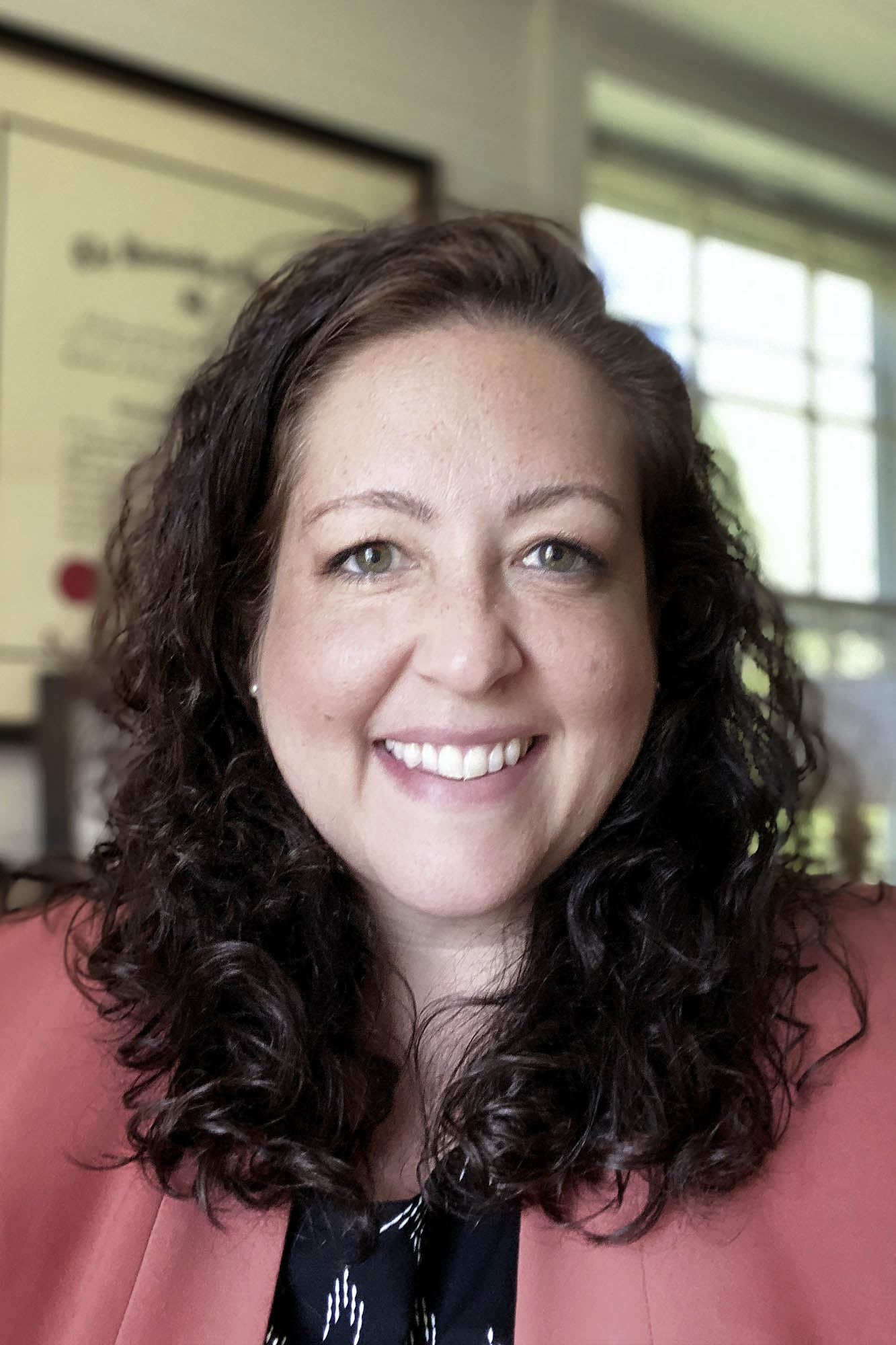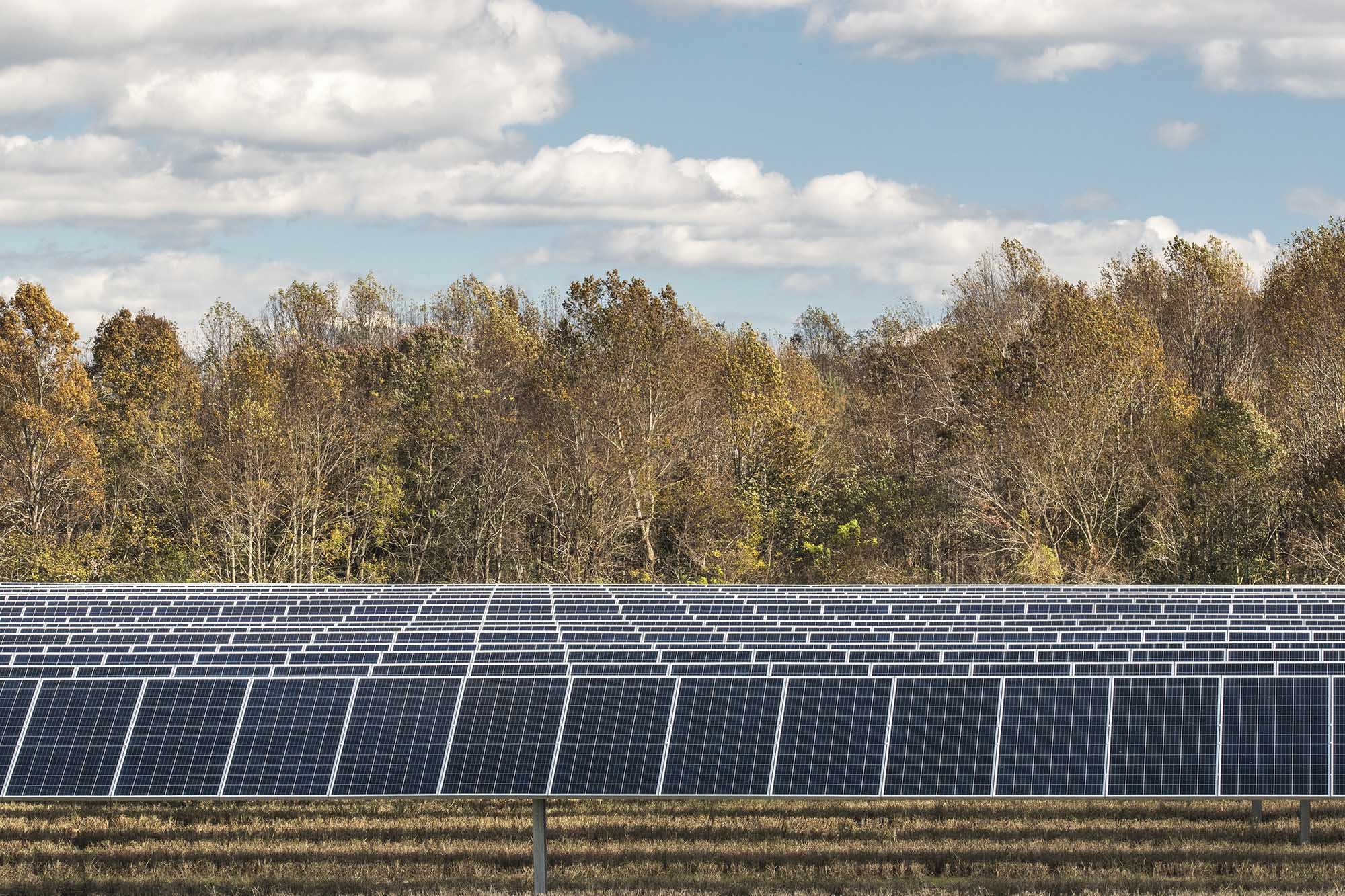Some of the most successful mergers are often the ones that occur organically – and that appears to be the case with the University of Virginia’s Weldon Cooper Center for Public Service’s Energy Transition Initiative.
The union between the Cooper Center’s Virginia Clean Energy Project and its Virginia Solar Initiative, announced during last month’s Virginia Clean Energy Summit, is designed to leverage UVA’s expertise in the sustainable energy space.
Arthur Small, who had been serving as the project manager for the Virginia Clean Energy Project, and Elizabeth Marshall, who had been heading up the Virginia Solar Initiative, decided that combining the two entities would be best way to help Virginia get to net carbon neutrality by 2050.
“Over and over, we turned to the Virginia Clean Energy Project to leverage the insights that they were developing as part of their state-focused program with some of the more technical perspectives that we were fine-tuning through VSI,” Marshall said.

“We kept finding that we were collaborating, that our work was overlapping,” Small added. “We began to consider the value of creating a ‘one-stop shop’ for a range of services, analysis and research that all relates to Virginia’s energy transition.”
The benefits of a partnership became obvious when Small and Marshall were developing the “SolTax” tool, which is designed to help Virginia localities evaluate different ways of taxing solar energy projects.
“Our skills with data and analytics meshed perfectly with VSI’s expertise in local policy,” Small said.
UVA Today caught up with Small and Marshall to learn more about the Energy Transition Initiative.
Q. What do you see as the benefits of this merger?
Marshall: If you look at other states that are making significant progress transitioning toward a higher percentage of their energy coming from renewables, especially higher rates of solar, what those states have in common is many of them have a center for clean energy policy dedicated to that state’s particular situation.

Elizabeth Marshall previously headed up the Virginia Solar Initiative. (Contributed photo)
Virginia has not previously had a centralized resource that can provide unbiased and research-based information to support informed policymaking or to promote the adoption of clean energy statewide. One of the benefits of merging [Virginia Solar Initiative and Virginia Clean Energy Project] under the new umbrella of the Energy Transition Initiative is that we can begin to serve this role. Our goal is to serve as a center for excellence in analyzing energy systems, to identify roadblocks and reduce barriers to achieve net-zero carbon electric sector by 2050, and to promote informed, engaged and inclusive decision-making.
It makes sense to locate this center at UVA. UVA is as a world-class institution. Our expertise is not limited to economics, planning, energy and data analysis. We are also leaders in engagement, equity and social justice issues. Not only can we conduct energy policy research and analysis, we are also well-positioned to serve as a convener to bring together stakeholders and other universities, agencies and nonprofits that are doing work in this space, so that state and local policymakers can use that information to develop more informed and just policies, tools and guidance.
Small: Historically, when our state policymakers have needed analysis of energy policy, they typically either had to buy it from consultants, or rely on parties who had a direct financial stake in the outcome. Virginia hasn’t previously had an established source for high-quality analysis of energy policy – analysis that is deeply informed, consistently engaged and genuinely neutral.
Virginia’s pivot from fossil energy to sustainable energy will involve literally billions of dollars of investment and major decisions about the future, in a domain area that often gets highly technical. These decisions touch on the interests of many, many different stakeholders. There should be a place that provides this high-quality, impartial analysis to help advise decision-makers and convene informed conversations.
Q. Recently, your colleague, William Shobe, presented a report on alternative pathways Virginia could take to reach the goal of carbon neutrality by 2050. In trying to reach that goal, what are some the biggest obstacles you expect to face?
Small: Right now, Virginia generates more than half its electricity from fossil fuels, mostly natural gas. Getting to carbon neutrality will involve installing a lot of renewables. Our modeling suggests that getting to carbon neutrality could involve putting solar panels on something like 1% of the land area of Virginia. A lot of that is going to end up in areas that are flat and sunny and therefore that are probably right now in agriculture or forestry. The question then arises: how can this new energy system be integrated into the existing landscape, in ways that are in harmony with local goals and local culture?

Arthur Small says the Energy Transition Initiative will expose students to every facet of the policymaking process. (Contributed photo)
Marshall: One of the sticky points in Virginia when it comes to the development and siting of utility-scale solar is that decision-making about land use and whether certain things get permitted falls largely within the hands of localities, and each locality in Virginia has its own set of codes and ordinances and policies related to land use. And so, coordination between state-level goals and objectives and local-level policies is essential.
Over the past few years, we’ve seen tremendous amount of collaboration in terms of designing, proposing and adopting new legislation designed to help increase benefits of solar for localities, and thus facilitate the advancement of solar energy across the state. Industry and localities tell us they think are at a good place, policy-wise, for now, but the laws are very new and so the outcomes have yet to be realized. In the meantime, there’s a continued need for education and engagement about solar, as well as other forms of renewable energy.
Small: We recently convened a focus group with interested stakeholders. One of the themes we heard clearly from localities is that they want to manage their own local land-use decisions. What they want are resources; they want to be able to understand the new opportunities that solar creates for them, and to navigate the challenges. They feel like they are starting to figure out how to do that.
As we see it, that’s where the Energy Transition Initiative comes in. We can play that critical role of trusted, impartial adviser. We can help localities make sense of a fast-changing energy policy landscape and deliver tools that help them reach their own decisions that are right for them.
Q. Are there some upcoming policy decisions (pertaining to Energy Transition Initiative’s objectives) that the public should keep an eye on?
Small: Transportation – specifically, Virginia’s prospective entry into the Transportation Climate Initiative.
The Virginia Clean Economy Act dealt almost exclusively with the electricity system. Electricity generation accounts for about 20% of Virginia’s emissions of greenhouse gases. Transportation accounts for around 50%. To address those emissions, we’re going to have to shift sharply toward electric vehicles.
Q. Just anecdotally, does it seem like people, in general, are more well-versed on sustainability than they were 10 years ago? Does there feel like there’s some real momentum now?
Marshall: In terms of utility-scale solar development, which often requires public hearings for approval, it is helpful when the public understands the science of climate change and understands the need to advance clean energy and renewable technologies. However, utility-scale solar development is a relatively new land use; in Virginia, it has only been the focus of public conversation since around 2015.
I suspect that the progress that we’ve made over the past five years, in terms of increased solar installations and support for state legislation designed to increase the adoption of renewable energy sources, is an indication of increased awareness and support on the part of the public in general.
Small: Another big thing that has changed, besides public awareness, is the plummeting price of generating electricity from solar panels. This has been a complete game-changer. It has really opened the doors to the public in terms of being able to make solar more accessible – on their own homes as well as at utility scale.
Q. Do we know how Virginia compares to other states in lowering emissions and transitioning to solar?
Small: We jumped not quite to the front of the queue, but way up in the league tables. Virginia has put real substance into the law. It’s not just a press release and a ribbon-cutting. We’re certainly now a leader within the South.
On the other hand, we’re in a sense just getting started. It’s really only in the past year that we have adopted a strong clean energy strategy. We’re still far behind states like California and Hawaii.
And we should say also with humility: We’re behind. This energy transition will involve a much sharper turn than it could have if we had gotten on this 40 years ago. We’re not out of time yet. But we no longer have any decades left to waste.
Q. I know you are excited about how the Energy Transition Initiative will continue to expand opportunities for students to get hands-on policy and research experience. What are some things interested students can get involved with, and how do they go about getting started?
Small: Yes, we are definitely excited about how the Energy Transition Initiative will continue to expand opportunities for students to get hands-on policy experience and training. Being under one umbrella allows us the opportunity to give them exposure to policy at every scale and every level: the local, state, and to some degree, considerations of federal policies.
Marshall: Providing meaningful real-life public service experiences for students is a Weldon Cooper Center goal identified in our strategic plan; it is core to our purpose. Like Art said, establishing the Energy Transition Initiative allows us to expand the opportunities for students by providing them exposure to every facet of the policymaking process.
Anyone wishing to get involved should call or email me (emm2t@virginia.edu). We are beginning to plan our project teams for 2021 and we are going to be working on some really wonderful, impactful things: we’re coding, we’re working with data, we’re analyzing policy, we’re organizing stakeholder meetings, we’re developing research-based best practice guidance, we’re administering a statewide survey. … There will be lots of ways to contribute!
Q. Anything else you’d like to add?
Small: This is about being a leader in research, education and service. We are confronted with a monumental challenge, a society-reshaping challenge of climate change.
At the Energy Transition Initiative, we are creating practical strategies for getting the job done and engaging students, engaging researchers and reaching out and providing value to stakeholders, at the state and local levels, and in business and civil society. So we’re doing what we’re supposed to do and we are real happy to be at the center of it.
Media Contact
Article Information
November 6, 2020
/content/qa-new-center-heart-virginias-transition-clean-energy

